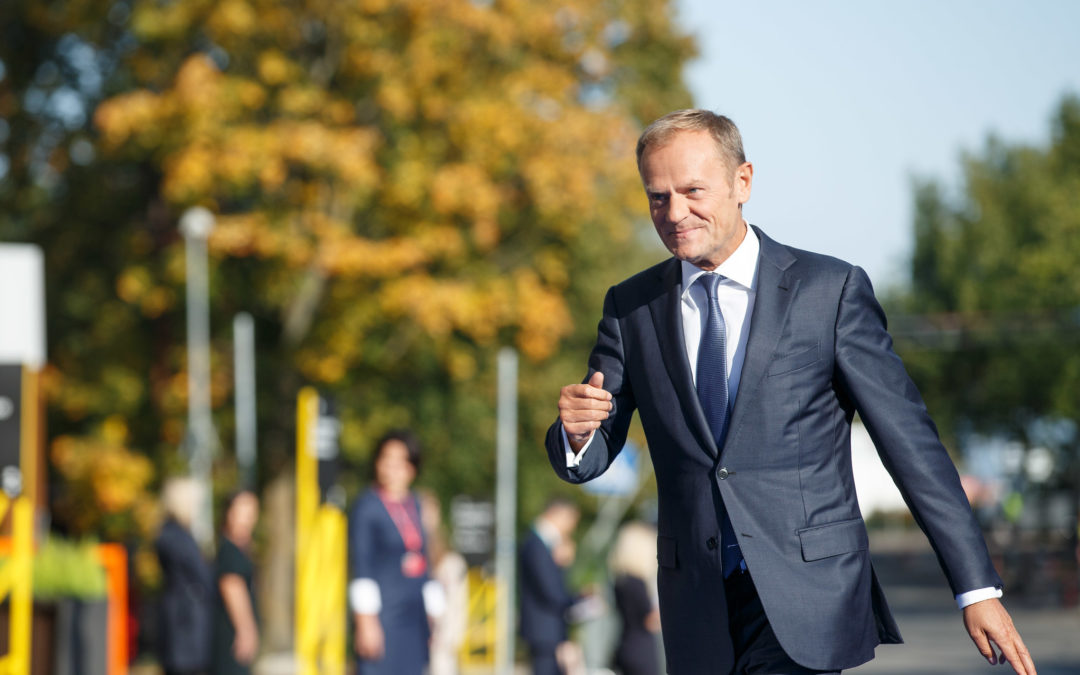Outgoing European Council president Donald Tusk has been chosen as the new president of the European People’s Party (EPP) at its congress today in Zagreb.
He was elected with the votes of 93% of delegates – a margin of victory helped by the fact that he was the only candidate standing for the position.
During his speech, Tusk called on the EPP to avoid “giving up the realm of security and order to the populists, manipulators and autocrats, who make people believe that freedom cannot be reconciled with security, that border protection cannot go hand in hand with liberal democracy, and effective governance with the rule of law”.
“We will not sacrifice such values as civil liberties and the rule of law on the altar of security and order, because there is no such need, they are not mutually exclusive,” declared Tusk. “If someone is not able to accept that, they place themselves outside our family.”
His words were a clear reference to Hungary’s ruling Fidesz party, whose membership of the EPP has been suspended since March due to its “unacceptable anti-EU rhetoric” and “divergences…[on] democracy, rule of law, freedom of press, academic freedom and minorities rights”.
One of Tusk’s first task as the EPP’s new president will be to reach a final decision on Fidesz’s membership.
In his new position Tusk may also have greater freedom to renew his old domestic rivalry with Poland’s ruling Law and Justice (PiS) party and its leader, Jarosław Kaczyński. As head of the European Council, Tusk became increasingly explicit in his support for Poland’s opposition, openly campaigning for them during this year’s two elections.
Donald Tusk appeared at an opposition march in Warsaw today, giving what was effectively a campaign speech
'Is it really worth taking the risk of voting for those people who, shouting "law", violated the constitution, saying "justice", destroyed courts' https://t.co/AG5UxNWPiI
— Notes from Poland ?? (@notesfrompoland) May 18, 2019
Tusk recently ruled out a direct return to Polish domestic politics, declaring that he would not stand for the presidency next year against incumbent and likely PiS candidate Andrzej Duda. Tusk said that he had too much “baggage” in his homeland.
At the same time, Tusk promised to continuing “strongly supporting the opposition”, and in more recent remarks warned that “everything should be done to prevent [PiS] from destroying the constitutional order and rule of law for the next four years”.
The centre-right EPP is the largest of the transnational political groupings within the European Union. At this year’s European elections it won the most seats in the European Parliament, as it has at every election since 1999. One of its members is Civic Platform (PO), the party that Tusk founded and led for 11 years, including seven as Poland’s prime minister.
The EPP’s largest and most influential member is Germany’s ruling Christian Democratic Union, the party of Angela Merkel and incoming European Commission chief Ursula von der Leyen.
Main image credit: Paul Mee/EU2017EE/Flickr (under CC BY 2.0)

Daniel Tilles is editor-in-chief of Notes from Poland. He has written on Polish affairs for a wide range of publications, including Foreign Policy, POLITICO Europe, EUobserver and Dziennik Gazeta Prawna.




















